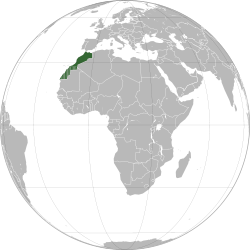EURASIA REVIEW

By: Said Temsamani
Many observers of the “Arab Spring” wonder why this phenomenon has taken violent forms in some Arab countries, while taken non-violent forms in others. To me, the answer holds in one word – “legitimacy.”
Wherever legitimacy was lacking, demonstrations quickly transformed into uprisings, if not into revolutions. To the contrary, in the countries where the rulers had some kind of legitimacy, be it religious or traditional, demonstrations simply inaugurated a peaceful reform process or a new course of change.
In Morocco, the monarchic regime had a strong legitimacy. Deeply rooted in the “Commander of the Faithful” status of the king, this legitimacy had been consolidated by the role played by the monarchy, first, in the fight for independence, and then in the semi-democratic system established after independence.
This semi-democratic system, then subsequently underwent substantial improvements beginning from the early 1990s, when the late Hassan II called for an “alternate government” to be formed by the opposition parties. The pace of these
improvements accelerated with the advent of the Mohammad VI, who in particular encouraged the national reconciliation process which called for a radical reform of the judiciary, launched the “regionalization” process, and last, but not least, installed the “Economic and Social Council” as a permanent frame for social dialogue and discourse.
All these improvements needed was to culminate in a profound reform of the constitution. It is the merit of the 20th of February movement, which finally precipitated and accelerated this reform process. Morocco has now certainly one of the most advanced constitution in the Arab world.
It clearly reflects the diversity of Moroccan society and culture, including recognition of ethnic Berbers and making their language with Arabic official state language. It explicitly mentions all universally agreed upon human rights. It particularly insists on women’s rights. It establishes a clear separation of powers.
But a constitution is merely still just a text when it is written. It needs to be enacted in the field. And this is where the role of political parties come in. It is in the end their responsibility to mobilize the people and to expand their participation.
In the final analysis, the reforms now extant in Morocco were just a beginning and it will take dedication, hard work, and greater involvement on the part of the parties and the country’s citizens, including 13-15 million young adults, before real democratization can be realized.
But a constitution and an election, while essential building blocks for democracy, are not in themselves dispositive.
What counts is where the leaders want to take this North African nation. Will it move inexorably to democracy? Or will it backslide with pressure from Islamist movements? That was the great irony of the Arab Spring. Its tragedy is that the Islamists, for whom Western-style elections are stepping stones to the eventual imposition of Islamic law, knew how to manipulate the democratic process far better than did their liberal rivals.
There remain many unanswered questions, but on one matter there is not an open question: The reforms initiated by King Mohammed should be greeted with gratitude and respect. At long last there is another model for the Arab future, one that the West should embrace wholeheartedly.
1
About the author:
Said Temsamani
Said Temsamani is a Moroccan political observer and consultant, who follows events in his country and across North Africa. He is a Senior Fellow, Merdian International Center Washington DC, Founder and CEO “Public Initiatives” Consulting firm and Former Senior Political Advisor, US Embassy Rabat, Morocco.
.






